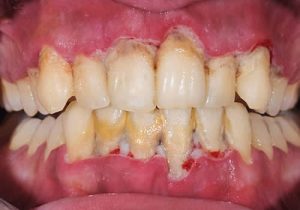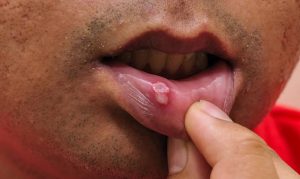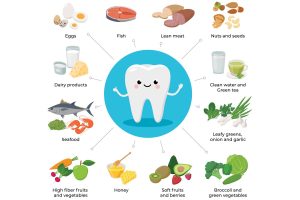Oral health refers to the health of your teeth, gum, and the entire oral-facial system that allows you to smile, speak, and chew.
Your oral health is linked to whole-body health. For example, if you have an infection in your mouth, your bloodstream can carry the bacteria to other areas of your body, and this can lead to other health concerns.
The World Health Organisation Global Oral Health Status Report (2022) estimated that oral diseases affect close to 3.5 billion people worldwide, with three out of four people affected living in middle-income countries.
Globally, an estimated two billion people suffer from caries of permanent teeth and 514 million children suffer from caries of primary teeth, WHO said.
Oral diseases affect about 3.5 billion people globally, with three out of four people affected living in middle-income countries
It added, “The prevalence of the main oral diseases continues to increase globally with growing urbanisation and changes in living conditions. This is primarily due to inadequate exposure to fluoride (in the water supply and oral hygiene products such as toothpaste) and, availability and affordability of food with high sugar content; and poor access to oral health care services in the community.
“Marketing of food and beverages high in sugar, as well as tobacco and alcohol, have led to a growing consumption of products that contribute to oral health conditions and other Non-Communicable Diseases.”
So, it is advisable to prevent oral health problems before they start, by taking good care of your oral health.
Some of the most common diseases that impact our oral health include cavities (tooth decay), gum (periodontal) disease, and oral cancer.
Marketing of food and beverages high in sugar, tobacco and alcohol, have led to a growing consumption of products that contribute to oral health conditions
Common signs of poor oral hygiene include:
 Bleeding gums: The build-up of dental plaque causes bleeding gums, a common symptom of gingivitis, periodontitis, and other forms of gums disease. Meanwhile, bleeding from your gums can also indicate other issues like teeth grinding, diabetes, hormone fluctuations, and vitamin deficiencies.
Bleeding gums: The build-up of dental plaque causes bleeding gums, a common symptom of gingivitis, periodontitis, and other forms of gums disease. Meanwhile, bleeding from your gums can also indicate other issues like teeth grinding, diabetes, hormone fluctuations, and vitamin deficiencies.

Tooth decay: Tooth decay destroys the hard outer surface of a tooth.
Chronic bad breath: This is a bad odour from the mouth. The major causes include a dry mouth caused by certain foods, smoking, poor oral hygiene, and a coated tongue.
Loose teeth: This occurs when a tooth loses support and slowly detaches from the gums and bone.
Gum recession: This occurs when your gum tissue pulls away from your teeth, exposing the roots underneath. Your teeth can become more sensitive when brushing or when eating as well.

Mouth sores: Mouth sores that don’t go away can be serious, and you need to see a dentist immediately.
Toothache: A toothache is a pain that you feel in or around your tooth.
Swelling of the jaw: This can cause pain and fevers. This can be quite uncomfortable and very concerning.
Effective approaches to preventing oral diseases
Brush your teeth at least twice a day: Brush your teeth at least twice daily with fluoride-containing toothpaste (1000 to 1500 ppm). Medium or hard bristles can damage your gums and tooth enamel. Make sure you brush all teeth surfaces, including the backs and sides.
Brush your tongue: Always brush your tongue whenever you brush your teeth.
Avoid tobacco use: Tobacco, alcohol, and areca nut (betel quid) use are among the leading causes of oral cancer. It is best to avoid them. In fact, according to the National Institutes of Health, areca nut is a highly addictive substance with carcinogenic properties, and causes many harmful effects to the human body.
“Alkaloids are the major chemicals found in areca nut,” NIH says; with the peer-reviewed online journal Science Direct warning that alkaloids directly act on the central nervous system in the human body, among other health-damaging activities.

Limit alcohol consumption: Oral diseases are caused by a range of modifiable risk factors common to many NCDs, including alcohol use.
Drinking alcohol to excess increases the risk of oral injuries. Drinking too much alcohol has also been linked to oral health problems including oral cancer, tooth decay, and tooth erosion
Maintain a healthy diet, especially low in sugar: To help reduce tooth decay cut down on how often you have sugary foods and drinks, and try to have sugar-free varieties.


